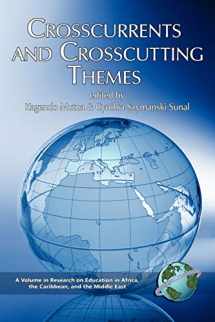
Crosscurrents and Crosscutting Themes (Research on Education in Africa, the Caribbean, and the Middle East)
Book details
Summary
Description
In this Third Volume of the series, Research on Education in Africa, the Caribbean and the Middle East, the volume continues with the previously established overarching purpose of publishing chapters that are based upon research conducted in those regions by scholars, many of whom are indigenous to the regions they write about and are, therefore, able to provide cultural insights about relevant issues, as well as nonindigenous scholars who have conducted their studies in countries within the regions or about those regions. This mixture of indigenous scholarship offering emic perspectives and outside scholarship offering etic perspectives continues to be a relative strength and uniqueness of this book series. In addition, several chapters in the current volume constitute collaborations between the authors etic and emic to the contexts about which they write. This bifocality in the gaze cast upon issues covered in this book series has been well received by readers of earlier volumes of the series.


We would LOVE it if you could help us and other readers by reviewing the book
Book review



